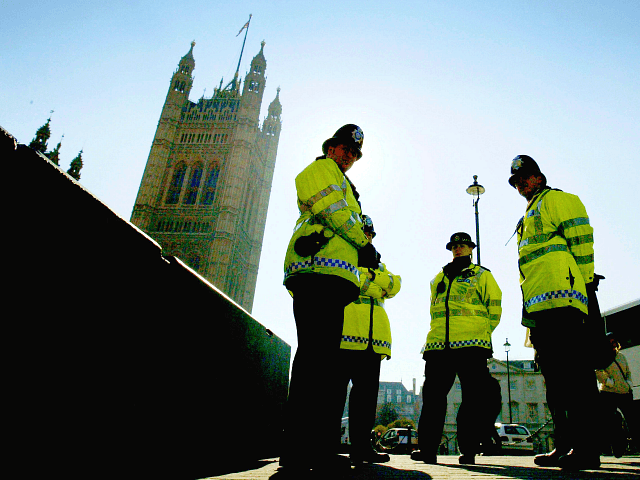The U.K. government has revealed a set of planned “extreme” measures to sanction tech companies which fail to remove “harmful content” online, including terrorist content, self-harm, bullying, and child pornography, but also “extreme pornography,” “trolling,” and “disinformation.”
The plans were published on Monday as a White Paper on the official website for the U.K government.
“The paper’s definition of harmful content is broad, ranging from terrorist content, to images of self-abuse, and child sexual exploitation,” reported Business Insider, adding that the policy paper “lays out several more extreme punitive measures which the government is considering.”
The White Paper also notes that its definition of “harmful content” includes “behaviours which are harmful but not necessarily illegal,” and specifically mentions “disinformation”, “Extreme pornography,” and “trolling” as examples of “harmful content.”
The proposed government powers reportedly include fines, the “ability to force third-party companies to shut down anything which, ‘directly or indirectly facilitates access’ to content from a website that’s in breach,” the ability to downgrade the offending company’s results on search engines, the ability to block offending company’s websites in the UK, the ability to make companies hand over any information related to their response to the “harmful content,” and the ability to hold individual company executives legally liable for content deemed harmful.
UK Culture Secretary Jeremy Wright claimed on Monday that the government fines could be “up to 4% of global turnover,” and as reported by Business Insider, “if a website flouted new rules, the regulator could make Google downgrade search its results,” and the “regulator might also be given the power to pressure firms that run app stores — namely Apple and Google — to delist or deprioritise apps that feature harmful content in some way.”
Business Insider also reported that the government paper “acknowledged that geoblocking sites would present ‘technical limitations,’ presumably because savvy users would be able to access blocked sites through a VPN (virtual private network),” however the government still notes “that the threat of ISP-blocking would still act as a ‘powerful deterrent.'”
On its ability to hold individual executives accountable, the government paper declared, “This would mean certain individuals would be held personally accountable in the event of a major breach of the statutory duty of care.”
The White Paper also discussed the “threat” of Internet anonymity, and claimed the government and law enforcement “are taking action to tackle this threat.”
“The police have a range of legal powers to identify individuals who attempt to use anonymity to escape sanctions for online abuse, where the activity is illegal,” the White Paper explained. “The government will work with law enforcement to review whether the current powers are sufficient to tackle anonymous abuse online.”
One section of the White Paper, dedicated to “disinformation,” cited the “Russian State” as a “major source of disinformation,” and declared, “Inaccurate information, regardless of intent, can be harmful – for example the spread of inaccurate anti-vaccination messaging online poses a risk to public health. The government is particularly worried about disinformation (information which is created or disseminated with the deliberate intent to mislead; this could be to cause harm, or for personal, political or financial gain).”
“The tragic recent events in New Zealand show just how quickly horrific terrorist and extremist content can spread online. We cannot allow these harmful behaviours and content to undermine the significant benefits that the digital revolution can offer,” declared Culture Secretary Jeremy Wright and Home Secretary Sajid Javid in the White Paper. “While some companies have taken steps to improve safety on their platforms, progress has been too slow and inconsistent overall. If we surrender our online spaces to those who spread hate, abuse, fear and vitriolic content, then we will all lose.”
“So our challenge as a society is to help shape an internet that is open and vibrant but also protects its users from harm. The UK is committed to a free, open and secure internet, and will continue to protect freedom of expression online. We must also take decisive action to make people safer online,” the two proclaimed. “This White Paper therefore puts forward ambitious plans for a new system of accountability and oversight for tech companies, moving far beyond self-regulation. A new regulatory framework for online safety will make clear companies’ responsibilities to keep UK users, particularly children, safer online with the most robust action to counter illegal content and activity.”
Charlie Nash is a reporter for Breitbart Tech. You can follow him on Twitter, or like his page at Facebook.

COMMENTS
Please let us know if you're having issues with commenting.